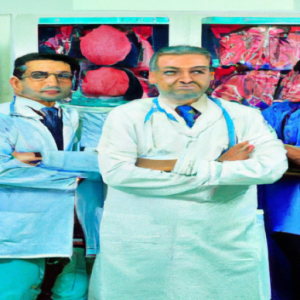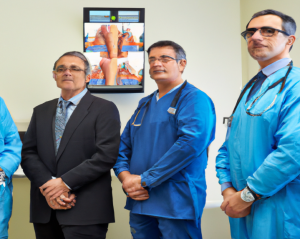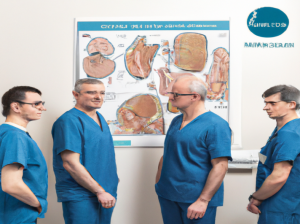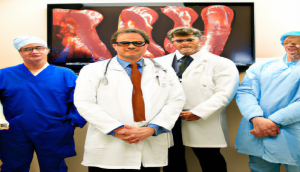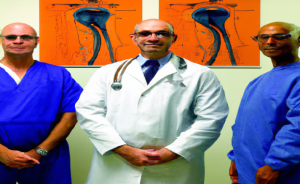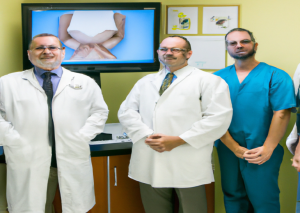Jus De Cranberry Infection Urinaire: Y a-t-il un avantage ?
Chaque année, des millions de personnes contractent des infections urinaires. La première fois que je les ai rencontrées, c’était après un long voyage, qui semblait déclencher ces épisodes inconfortables. J’en ai appris davantage sur les raisons, les symptômes et la structure parce que cela m’intéressait.
Les infections urinaires surviennent lorsque des bactéries, principalement E. coli, pénètrent dans le système urinaire et provoquent une inflammation. Cela peut entraîner de nombreux symptômes désagréables, tels que des brûlures lors de l’urination, des envies fréquentes d’aller aux toilettes et des douleurs dans le bas-ventre.
Lors de mes visites à la Clinique d’urologie Victoria, j’ai découvert que la structure du système urinaire, en particulier chez les femmes, facilite l’entrée des bactéries. Les uretères des femmes étant plus courts, les bactéries n’ont pas à parcourir une aussi grande distance pour atteindre la vessie.
Le corps a ses propres défenses, comme l’urine qui élimine les germes, et la muqueuse de la vessie et de l’urètre qui aide le système immunitaire à mieux fonctionner. Mais il arrive que ces défenses naturelles ne soient pas assez fortes et que les infections commencent à se propager.
Après ma deuxième visite à la clinique, j’ai commencé à m’intéresser à la manière dont des facteurs tels que la quantité d’eau que vous buvez et la fréquence à laquelle vous allez aux toilettes peuvent influer sur la fréquence et la gravité des infections urinaires. Il est particulièrement important de s’hydrater, car l’urine est moins concentrée et le corps élimine plus souvent les bactéries.
Prendre soin d’une infection urinaire est devenu un défi pour moi, ce qui m’a poussé à chercher d’autres moyens que les médicaments pour éviter d’en contracter une. C’est ainsi que j’ai découvert des traitements naturels comme le jus de canneberge.

Behind the scenes: Urologists preparing for surgery, exemplifying the meticulous planning and precision that goes into every procedure to ensure patient safety and success.
Le jus de canneberge : Quels sont les avantages ?
Après qu’une infirmière d’urologie Victoria, m’a suggéré de boire du jus de canneberge pour rester en bonne santé, je me suis intéressée à ce produit. J’ai cherché à savoir comment les canneberges pouvaient affecter la santé de la vessie, car ce choix naturel m’intéressait. Les canneberges contiennent de nombreuses proanthocyanidines, des substances chimiques spéciales qui empêchent les germes d’adhérer aux parois de la vessie et de l’urètre. Cela pourrait rendre les infections urinaires moins fréquentes.
Lorsque j’ai commencé à boire du jus de canneberge, je l’ai fait tous les jours. J’ai remarqué que le nombre d’infections urinaires que j’avais diminuait au cours des derniers mois. À la suite de cette observation personnelle, j’ai examiné les études scientifiques qui confirment ces résultats. Il s’avère que ces baies modifient la façon dont les germes adhèrent aux surfaces, ce qui les empêche d’infecter les gens comme ils le feraient normalement.
J’ai également étudié la valeur nutritionnelle des canneberges et j’ai découvert qu’elles contiennent beaucoup de vitamine C et d’antioxydants, tous deux bénéfiques pour le système nerveux. Cette double action, bonne pour la santé et empêchant les bactéries de s’incruster, m’a intéressé et m’a donné encore plus envie de boire du jus de canneberge tous les jours.
Il est prouvé que le jus de canneberge peut aider à lutter contre les infections urinaires récurrentes, mais il est également clair qu’il ne s’agit pas d’une panacée. Cette différence est apparue clairement lorsque j’ai parlé aux agents de santé du centre. Ils ont insisté sur l’importance d’une approche équilibrée, comprenant des éléments tels que l’hydratation et l’hygiène personnelle.

Advanced urological care in action, showcasing a team of skilled professionals using state-of-the-art equipment to diagnose and treat complex conditions, ensuring every patient receives the best possible care.
Études et recherches actuelles sur le jus de canneberge
Après avoir connu un certain succès avec cette boisson, j’ai commencé à étudier les effets du jus de canneberge sur la santé de votre système urinaire. Une étude a attiré mon attention parce qu’elle expliquait comment les proanthocyanidines contenues dans les canneberges empêchaient E. coli d’adhérer aux parois du système urinaire. Cette interaction est très importante, car elle montre comment la consommation régulière de jus de canneberge peut contribuer à réduire le risque d’infections urinaires.
Lors d’une réunion, j’ai parlé à des chercheurs qui m’ont fait part des résultats d’une étude contrôlée dans laquelle les personnes qui buvaient du jus de canneberge tous les jours avaient moins d’infections urinaires que celles qui n’en buvaient pas. La méthode utilisée par la communauté scientifique pour utiliser les dons de la nature à des fins de santé est apparue plus clairement au cours de ces entretiens.
Cela dit, toutes les études n’ont pas donné les mêmes résultats, et c’est ce qui m’a donné envie d’en savoir plus. J’ai appris que les produits à base de canneberge présentent une large gamme de concentrations de principes actifs. Cela pourrait expliquer pourquoi les résultats des études ne sont pas toujours identiques.
Dans ma propre vie, l’utilisation des résultats de l’étude m’a permis de choisir le bon type de jus de canneberge et de l’ajouter à mon régime alimentaire de manière saine. En suivant l’évolution de ma santé, j’ai pu ajuster la quantité de jus de canneberge que je prenais en fonction de ses effets réels, ce qui a rendu l’étude plus utile dans la vie de tous les jours.

The face of modern urology: An expert care team, united in their mission to advance men’s health through evidence-based practices and compassionate care.
Perspectives des urologues sur le jus de canneberge
J’ai obtenu des informations professionnelles sur l’utilisation du jus de canneberge pour prévenir les infections urinaires en discutant avec des urologues à UROLOGY Victoria. L’un d’entre eux a donné des exemples de patients qui ont pu boire du jus de canneberge de manière à ne plus souffrir d’infections urinaires.
Un médecin a dit un jour que le jus de canneberge peut être bon pour vous, mais qu’il ne devrait être qu’une petite partie d’un plan plus large pour votre santé et votre mode de vie.
Le centre a également organisé des cours pour montrer aux gens comment intégrer correctement le jus de canneberge dans une routine pour rester en bonne santé. Ces réunions m’ont ouvert les yeux sur l’aspect pratique de l’utilisation correcte des médecines naturelles. Les urologues ont préconisé des méthodes personnalisées, sachant que les changements alimentaires ont des effets différents selon les patients.
Le fait de parler régulièrement à ces experts a considérablement amélioré mes connaissances sur la manière dont le jus de canneberge affecte la santé urinaire. Ils m’ont donné une vision réaliste qui mettait en balance la science, les études et la pratique clinique.
- Women’s Urological Health
- Advanced urological care in action, showcasing a team of skilled professionals using state-of-the-art equipment to diagnose and treat complex conditions, ensuring every patient receives the best possible care.
- Compassionate care by professional urologists, captured in a moment of thoughtful patient consultation. This image reflects the empathy and understanding that forms the core of our clinical practice.
Consommation de jus de canneberge : recommandations
J’ai choisi de changer ma façon de boire du jus de canneberge après avoir beaucoup appris de mes études et de mes entretiens avec des urologues.
L’essentiel n’était pas d’en boire une fois de temps en temps, mais de planifier soigneusement la façon de l’inclure dans ma vie quotidienne. Je commençais chaque journée par un verre de jus de canneberge fade pour éviter de consommer trop de sucre, ce qui pourrait contrecarrer certains des avantages pour mes voies urinaires.
Un cours de diététique à la clinique m’a appris que l’ingestion d’un aliment peut également avoir une incidence sur son efficacité. On m’a suggéré que la consommation de jus de canneberge peu après un repas pouvait augmenter la concentration des principes actifs dans le flux urinaire pendant les périodes où les germes sont les plus répandus.
Ils m’ont également conseillé de rechercher des types de jus de canneberge indiquant leur teneur en proanthocyanidine. Ce sont les principes actifs qui empêchent les germes d’adhérer au système urinaire.
Le fait de partager ces informations m’a permis d’entrer en contact avec d’autres personnes souffrant d’infections urinaires récurrentes, en leur donnant des conseils utiles et des exemples concrets de l’aide que peut apporter le jus de canneberge. Les réactions ont été généralement bonnes et de nombreuses personnes ont déclaré que leurs symptômes et leur santé urinaire générale s’étaient améliorés.
Bien que le jus de canneberge ne soit pas une panacée, des études ont démontré son efficacité dans le cadre d’une stratégie globale de prévention des infections urinaires. Grâce à un apprentissage et à des changements constants, j’ai découvert une façon saine de prendre soin de ma santé urinaire. Je suis ravie de la partager avec la communauté, en espérant qu’elle aidera d’autres personnes dans leur cheminement vers la santé.
- Urology Lifestyle Advice
- Urological Associations
- Urology team in action: Enhancing men’s health through collaborative efforts, showcasing their dedication to delivering comprehensive and effective urological solutions.
- Urologists collaborating for better men’s health. This scene captures the essence of teamwork in medical practice, combining diverse expertise for comprehensive patient care.
- State-of-the-art urology facilities in use, illustrating the clinic’s investment in high-quality healthcare infrastructure to enhance diagnostic and treatment capabilities.
- “Urology specialists engaged in deep discussion about patient care, highlighting their commitment to continuous learning and collaboration in the pursuit of better health outcomes for men.


























